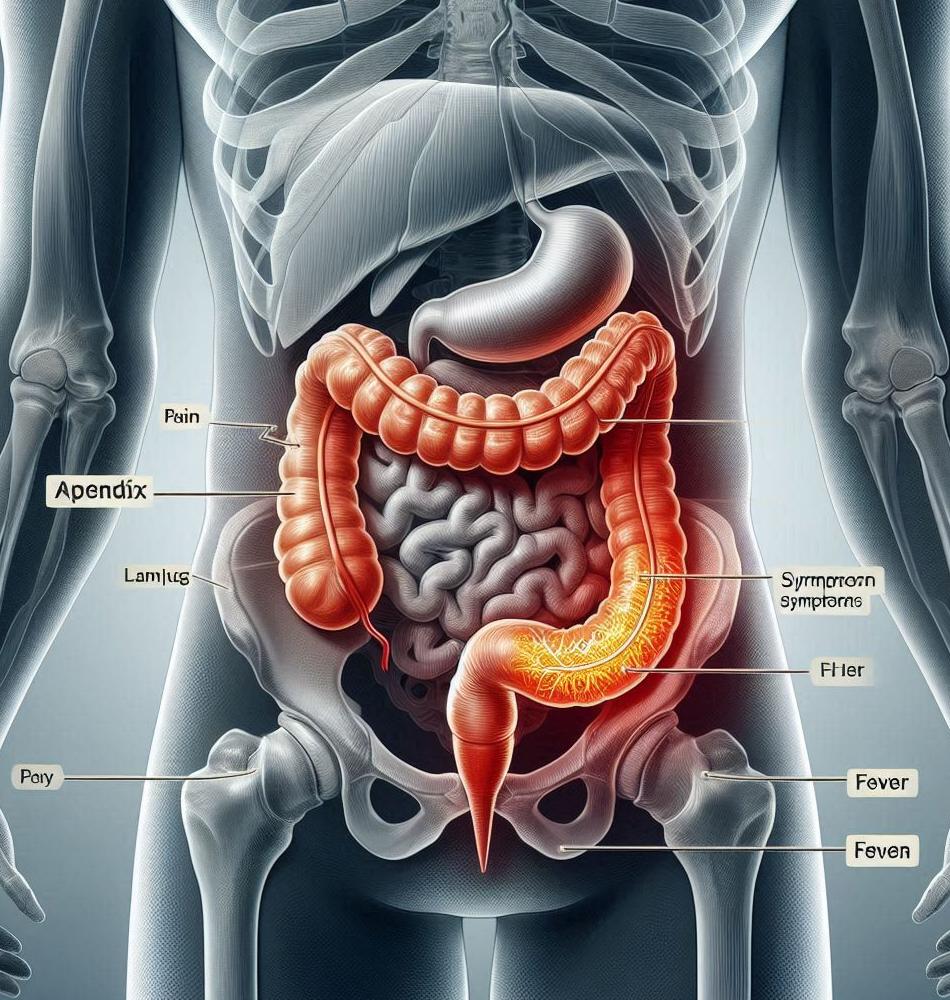How to Know if Your Appendix Has Burst? 🩺
This comprehensive guide will help you recognize the symptoms of a burst appendix, along with preventive measures and treatment options.
Introduction 🏥
Imagine you wake up one morning with a dull ache in your abdomen. At first, it seems trivial, but the discomfort grows, radiating to your lower right side, and your fever starts to creep up. You wonder if it's just that takeout from last night or something more severe. Enter the realm of appendicitis, an inflammation of the appendix that can potentially lead to it rupturing. So, how do you know if your appendix has burst? Understanding the symptoms, causes, and treatment options can help you take immediate action and avoid complications.
Understanding Appendicitis and Its Complications 🔍
Before diving into the red flags of a ruptured appendix, let's first look at what appendicitis entails. Appendicitis is a medical condition where the appendix becomes inflamed due to an obstruction, leading to intense discomfort. If not treated promptly, the inflamed appendix can burst, spilling infectious materials into the abdominal cavity. This can result in peritonitis, a serious infection of the abdominal lining.
Symptoms of Appendicitis ⚠️
Here are some common symptoms that indicate appendicitis:
- Abdominal pain starting near the navel, often shifting to the lower right side
- Loss of appetite
- Nausea and vomiting
- Swelling of the abdomen
- Difficulty passing gas
- Fever and chills
- Constipation or diarrhea
What Happens When Your Appendix Bursts? 💥
When your appendix bursts, the consequences can be dire. The infection spreads throughout your abdomen, leading to severe complications. Recognizing the signs of a ruptured appendix is crucial for timely treatment.
Signs Your Appendix Has Burst 🌪️
Be aware of the following signs that may indicate your appendix has indeed ruptured:
- Sudden and intense abdominal pain
- High fever, often exceeding 101°F
- Severe swelling of the abdomen
- Uncontrolled vomiting
- Rapid heartbeat
- Lethargy or confusion
Immediate Actions to Take 🚨
If you suspect that your appendix has burst, you need to seek medical help immediately. Time is of the essence when dealing with a ruptured appendix. Delaying treatment can lead to severe complications, including sepsis, an extreme immune response to infection.
When Should You Seek Medical Attention? ⏰
If you experience any of the following, do not hesitate to consult a healthcare professional:- Severe abdominal pain that worsens quickly
- Persistent nausea and vomiting
- High fever that does not come down with medication
- Severe swelling in the abdomen
Diagnosis and Treatment Options 🩹
Once in the emergency room, healthcare professionals will conduct a series of examinations. Understand the following diagnostic tools they might use:
Physical Exam and Medical History 📋
The doctor will begin with a physical exam, pressing on your abdomen to locate the pain. You may also be asked about your symptoms and any previous medical history related to abdominal issues.
Imaging Tests 🔬
Doctors often use imaging techniques such as:
- Ultrasound, especially for younger patients
- CT scans to get a detailed view of the appendix
Blood and Urine Tests 🧪
Blood tests can help check for signs of infection, while urine tests rule out other conditions like kidney stones.
Treatment for a Burst Appendix 💊
If diagnosed with a ruptured appendix, you will likely undergo the following treatments:
- Surgery, typically performed as an appendectomy to remove the appendix.
- Antibiotic therapy to combat infection.
- Intravenous fluids to keep you hydrated.
Recovery and Aftercare 🔄
The recovery process may vary based on whether your appendix was removed before or after it ruptured. Generally, if it bursts:
- You might stay in the hospital for a few days for observation.
- You'll need to avoid strenuous activities for several weeks.
- Follow-up appointments will be necessary to ensure a full recovery.
Preventive Measures: Can You Avoid Appendicitis? 💡
While there is no sure-fire method to prevent appendicitis, there are some steps you can take to reduce your risk:
- Embrace a high-fiber diet rich in fruits, vegetables, and whole grains.
- Stay hydrated to support digestive health.
- Regular physical activity can help maintain a healthy digestive system.
Frequently Asked Questions ❓
- What age group is most affected by appendicitis?
- Can appendicitis occur without common symptoms?
- Is a ruptured appendix life-threatening?
- How long does recovery take after an appendectomy?
Conclusion 📝
Recognizing the signs of a burst appendix can be a matter of life or death. From the initial symptoms of appendicitis to the serious consequences of a rupture, timely intervention is crucial. The key takeaway is that if you suspect any issues, don’t ignore the symptoms. Seeking prompt medical attention will improve your chances of a smooth recovery. Stay informed, stay healthy, and remember that when it comes to your health, it’s always better to err on the side of caution.







